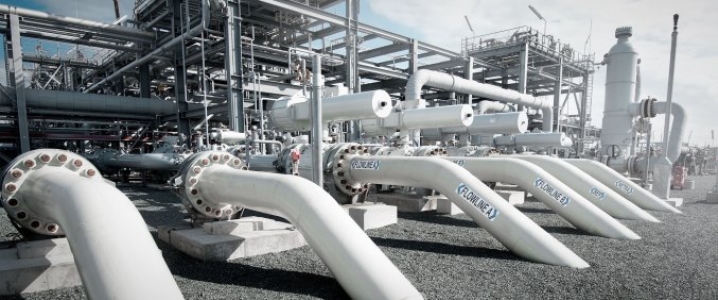Gazprom Partners in Nord Stream Quit Merger Talks

Gazprom’s partners in the Nord Stream-2 pipeline project have given up the merger plan that would have seen Gazprom, Shell, OMV, French Engie, and German Uniper and Wintershall combine into a consortium to build a gas pipeline under the Baltic Sea.
The change of plans was prompted by opposition from the Polish anti-monopoly regulator, which said earlier this year that such a consortium would unduly increase Gazprom’s already substantial influence over the Central European energy market and create an environment that could stimulate unfair competition.
According to some Russian media, Gazprom’s partners pulled out of the consortium due to worries about their business in Poland. It was precisely this existing business that necessitated the approval of UOKiK, the Polish regulator: Gazprom, Shell, Wintershall, and Uniper have a significant presence on that market.
The partners said in a statement they still consider Nord Stream-2 an important one for the European energy system and each of them will individually seek other ways to take part in it. Nord Stream-2 consists of twin pipelines running from Russia’s Baltic coast to Germany, bypassing Ukraine, which is currently the umbilical cord between Russian gas fields and European markets.
Ukraine has naturally strongly opposed the project, because it will lose money, but in light of the constant tensions – and financial disputes for gas payments due – between the two East European neighbors, Nord Stream-2 certainly makes sense for the Russian side.
The project also drew opposition and criticism from European Union officials, again on the grounds of too much market influence for Gazprom, which currently supplies around a third of the gas that the EU consumes. The U.S. has also voiced opposition, citing the political and financial instability of Ukraine, which will only deepen if Gazprom diverts some of the gas that it currently runs through Ukraine. Nord Stream-2 would carry 55 billion cu m of gas annually.
Related News
Related News

- Keystone Oil Pipeline Resumes Operations After Temporary Shutdown
- Freeport LNG Plant Runs Near Zero Consumption for Fifth Day
- Biden Administration Buys Oil for Emergency Reserve Above Target Price
- Mexico Seizes Air Liquide's Hydrogen Plant at Pemex Refinery
- Enbridge to Invest $500 Million in Pipeline Assets, Including Expansion of 850-Mile Gray Oak Pipeline
- Enbridge Receives Approval to Begin Service on Louisiana Venice Gas Pipeline Project
- U.S. to Acquire 3 Million Barrels of Oil for Emergency Reserve in September
- AG&P LNG Acquires 49% Stake in Vietnam's Cai Mep LNG Terminal
- BP's Carbon Emissions Increase in 2023, Ending Decline Since 2019
- Texas Sues EPA Over Methane Emission Rules for Oil and Gas Sector




Comments